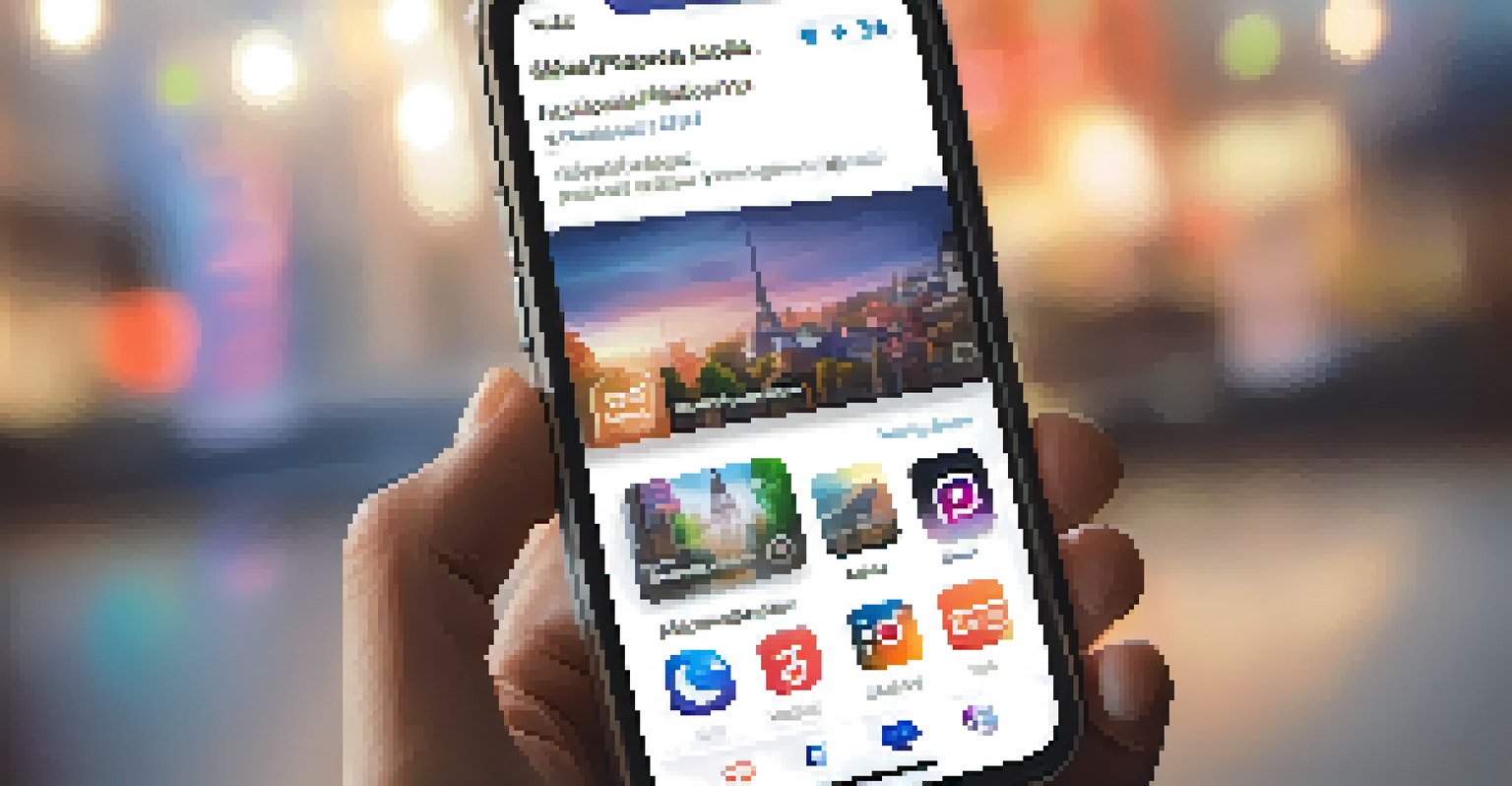Using Social Media as a Learning Resource

Understanding Social Media as a Learning Tool
Social media has transformed into a powerful platform for learning. It connects learners with a wealth of information and diverse perspectives. By engaging with others, users can access insights that enrich their understanding of various subjects.
Social media is not just an avenue for communication; it's a vast landscape of knowledge waiting to be explored.
Platforms like Twitter and LinkedIn can serve as valuable resources, allowing individuals to follow thought leaders and industry experts. This way, learners can stay updated with the latest trends and innovations in their fields. It’s like having a virtual classroom filled with the best minds.
Moreover, the interactive nature of social media encourages collaboration and discussion among peers. This not only makes learning more enjoyable but also deepens comprehension through shared experiences.
Finding Quality Content on Social Media
With the vast amount of information available, finding quality content can be daunting. However, using specific hashtags or following curated lists can help streamline the process. Think of it like sifting through a treasure chest; you need a good map to find the gems.

Many educators and organizations share valuable resources through social media. By exploring these accounts, learners can discover articles, videos, and podcasts that are both informative and engaging. This curated content can serve as a springboard for deeper exploration.
Social Media Enhances Learning
Social media serves as a dynamic platform that connects learners with valuable resources, experts, and diverse perspectives.
Additionally, joining groups or forums related to your interests can be incredibly beneficial. These communities often share valuable insights and recommendations, making it easier to navigate the overwhelming sea of information.
Engaging with Experts and Peers
Social media allows learners to connect directly with experts in their fields. This direct access can lead to mentorship opportunities or even just a chance to ask questions. Imagine being able to tweet a question to an author of a book you admire—how empowering is that?
The beautiful thing about learning is that no one can take it away from you.
Engaging with peers also fosters a sense of community. Learners can exchange ideas, share resources, and offer support, making the educational journey less isolating. This collaboration can spark creativity and inspire new ways of thinking.
Moreover, participating in discussions or webinars hosted on social media platforms can enhance understanding. These interactive sessions often provide practical insights that traditional learning methods may overlook.
Utilizing Social Media for Skill Development
Social media platforms are not just for networking; they're also excellent for skill development. Many users share tutorials, tips, and resources that can help individuals build new skills. Think of it as a virtual workshop where everyone contributes their expertise.
For example, platforms like Instagram and TikTok have become hotspots for creative skill-sharing, from cooking to coding. Users can learn by watching short, engaging videos that break down complex tasks into manageable steps. This visual approach often makes learning more accessible.
Finding Quality Content Efficiently
Utilizing specific hashtags and curated lists can help learners sift through the vast information available on social media to discover high-quality content.
Additionally, engaging in challenges or projects shared on these platforms can motivate learners to apply their skills in real-world scenarios. The sense of accomplishment that comes from completing a challenge can be incredibly rewarding.
Balancing Learning and Distraction on Social Media
While social media offers numerous learning opportunities, it can also be a source of distraction. Notifications and endless scrolling can easily derail focus, making it essential to set boundaries. Think of it as navigating a busy marketplace—there are many stalls, but you have to know where to shop.
Establishing specific times for learning on social media can help maintain focus. For instance, dedicating 30 minutes a day to engage with educational content can create a productive routine. This way, you can enjoy the benefits of social media without falling into the trap of mindless browsing.
Additionally, using features like 'Do Not Disturb' or app limits can help minimize distractions. By consciously managing your time, you can cultivate a more intentional and enriching learning experience.
The Role of Social Media in Lifelong Learning
Social media encourages the concept of lifelong learning, where education extends beyond formal settings. It connects individuals with resources and communities that promote continuous growth. Imagine a world where learning never stops—social media makes that a reality.
By following industry trends and engaging with new ideas, learners can adapt to evolving job markets and societal changes. This adaptability is crucial in today’s fast-paced world, where new skills are constantly in demand.
Ethics in Social Learning
Being mindful of information credibility, copyright, and personal boundaries is essential for responsible engagement in social media learning.
Moreover, sharing personal learning journeys on social media can inspire others to pursue their own educational goals. This ripple effect fosters a culture of learning and growth within communities.
Navigating Ethical Considerations in Social Learning
As with any tool, using social media for learning comes with ethical considerations. It's important to be aware of information credibility and avoid spreading misinformation. Think of yourself as a fact-checking detective in the digital age—every piece of information needs scrutiny.
Respecting copyright and intellectual property is also crucial when sharing content. Always give credit to original creators and seek permission when necessary. This not only fosters a respectful community but also encourages responsible content sharing.

Additionally, being mindful of privacy and personal boundaries while engaging online is essential. As you connect with others, remember that maintaining a respectful and professional demeanor reflects positively on your learning journey.